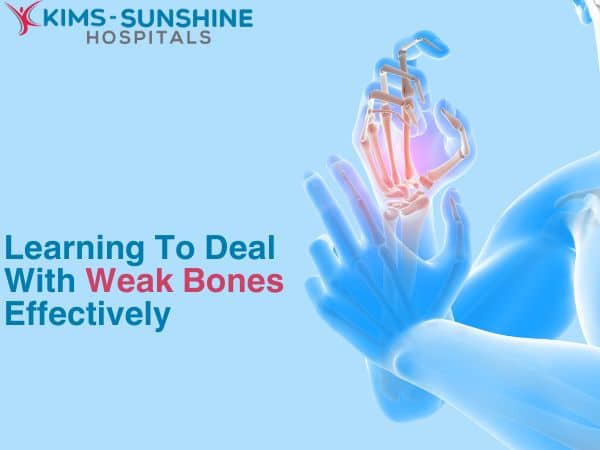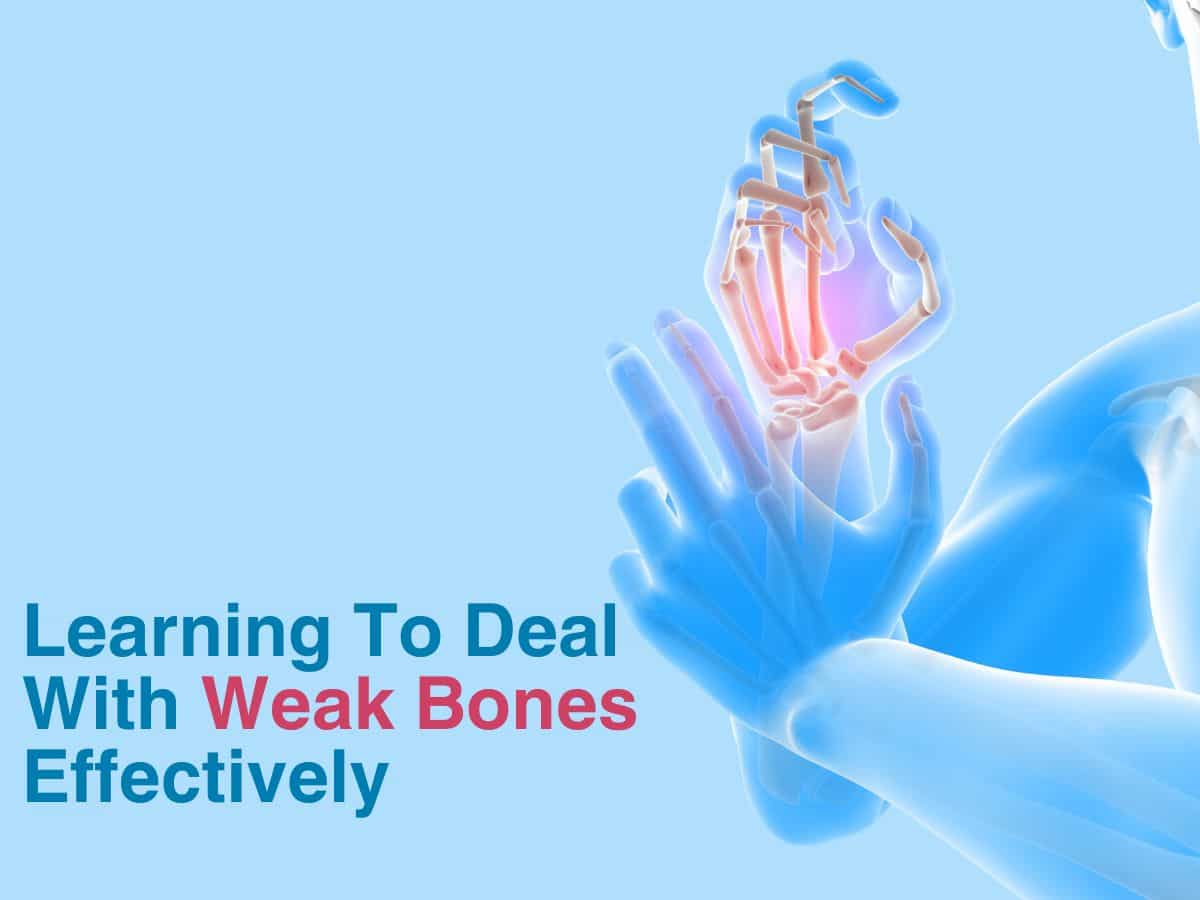
Learning To Deal With Weak Bones Effectively

The term ‘weak bones’ is normally used when bone density is low, or there are symptoms like chronic pain and an increased susceptibility for fractures. A healthy bone is extremely strong and can withstand most wear and tear with ease. Obviously, with continued usage and ageing, there is some loss in density, and some areas in the body can get more easily affected– like the wrists, spine or hips- all areas that are constantly under use.
Causes And Symptoms Of Weak Bones
There are many factors that can cause chronic symptoms- like gender, body size, familial history, hormonal changes like menopause or andropause, diet, medications and lifestyle in general. Other factors include regular consumption of alcohol, smoking, being sedentary and even side effects from regular medication like anticancer drugs, anticoagulants, diuretics, corticosteroids, anti-seizure meds etc. Getting bariatric surgery can also increase your risk of suffering from weak bones in the future.
Symptoms of weak bones can include the following
- Feeling out of breath
- Lumbar pain
- Postural changes can be major
- Fractures from minor falls
- Normal chores like bending or even lifting
- Loss in height
How To Strengthen Weak Bones Naturally
With a proper diet rich in calcium, Vitamin D and minerals, regular exercise, and using supplements for retaining bone health. Let us expand a little on each of these aspects
Symptoms Of Viral Gastroenteritis In Adults
Watch out for these symptoms-
- Diet: Having good quality food in the form of dairy or non dairy sources of calcium, fresh leafy greens, sesame seeds, nuts and oilseeds, protein rich tofu, whole fish like anchovies, sardines etc. These are some nutritious foods to eat if you have weak bones.
- Supplements: Vitamin D, Vitamin K, Magnesium Vitamin C, Zinc and Phosphorus- they are all essential in maintaining bone health.
- Exercise: Walking, aerobic exercises, weight training and low resistance workouts are your best options.
All of these tips, if followed systematically can help prevent weakening of bones as you age.
Conclusion
There are multiple factors that can contribute to bone weakness, and ageing as we know is just one such factor. Though wear and tear will occur, excessive loss in bone density can contribute to other issues like a greater incidence of hip fractures, or even death. There is severe pain which can adversely impact your quality of life. So, making changes to your lifestyle and eating well can really help in the long run.






